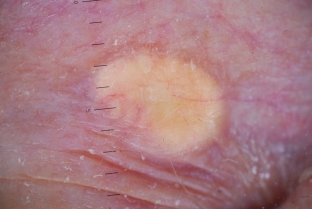Everyone knows that the skin performs, first of all, a protective function in the body, being the main obstacle to the penetration of foreign agents into it. In addition, the skin is able to be the first to signal that something is going wrong in the body, through various rashes and neoplasms. One of such indicators of the pathological process is the appearance of xanthomas – skin formations containing fatty inclusions resulting from a violation of lipid metabolism in the body.
What are xanthomas, why do they occur and what complications can lead – read today's article.
- Xanthomas on the skin: features that doctors should be aware of
- The main causes of xanthomas on the skin
- Types of xanthoma and characteristic features of each of them
- Complications of xanthomas: why correction is needed of the patient's condition
Xanthomas on the skin: features that doctors should be aware of
Xanthomas on the skin are pathological neoplasms of various shapes and sizes, localized in different areas of the skin. BLOCKCODE Xanthomas often appear on the skin of the knee and elbow joints, limbs and buttocks, but their favorite localization – this face. The problem occurs predominantly in women over the age of 40, but it can also affect men and even children. It is very important that xanthomas occur when lipid metabolism in the body is disturbed, which, in turn, & nbsp; can lead to serious illness with a fatal outcome. That is why it is so important for specialists to be able to distinguish xanthomas from other neoplasms on the skin, and to correct this condition.
Xanthomas:
- the main causes of xanthoma on the skin;
- types of xanthoma and characteristic features of each of them;
- complications of xanthoma: why correction of patient's condition is necessary. The main causes of xanthoma on the skin
The appearance of xanthomas on the skin is due to
disturbance of lipid metabolism
in the body, as a result of which their level in the blood rises. Often this condition occurs when:
atherosclerosis;
- diabetes;
- hypothyroidism;
- cholelithiasis;
- cirrhosis of the liver;
- hematological pathologies;
- malignant neoplasms, and so on. Genetic predisposition plays an important role in the occurrence of xanthomas on the skin. Xanthomas often appear in young people with familial hyperlipidemia, which is characterized by elevated cholesterol and triglyceride
blood levels. Types of xanthomas and characteristic features of each of them
Clinically, all xanthomas are divided into several main types,
each of which has its own characteristics:
flat xanthomas – look like flat and soft polygonal elements colored yellow. They can have different sizes, up to gigantic, more often localized on the eyelids and at the inner corner of the eye;
Lumpy (tuberous) xanthomas have the appearance of solid nodules of red-yellow color. They occur mainly in places of skin friction, for example, on the extensor surfaces of the knees and elbows. Lesions may be multiple or confluent;
tendon xanthomas – these are subcutaneous nodules associated with the tissue of ligaments and tendons, which slowly increase. Occur more often in the extensor region of the upper limbs and in the Achilles tendon;
Eruptive xanthomas are red-yellow papules that appear on reddened skin in the buttocks, shoulders, and extensor surfaces of the extremities. The rash is accompanied by itching and increased sensitivity of the skin when touched;

disseminated xanthomas have the appearance of multiple nodules and tubercles of red-yellow color, located in the folds of the skin;
verrucous xanthomas occur predominantly in the oral cavity, in the form of solitary rashes that are not accompanied by any symptoms. Less commonly, they appear on the extremities, in the anogenital region, and also on the walls of the esophagus;
xanthelasmas – it is a kind of xanthoma, which is a tumor-like formation raised above the skin, most often appearing- around the eyes. Complications of xanthoma: why correction of the patient's condition is necessary
Xanthomas by themselves can rarely cause complications. Often, patients do not pay enough attention to this pathological process, since xanthomas practically do not bother them at all. Extremely rarely, large xanthelasma formation on the eyelids can result in ptosis, resulting in visual impairment. In other cases, xanthomas are just a cosmetic defect that does not bother the patient. However, when xanthomas appear on the skin, correction of the patient's condition is extremely necessary, since this is – an important symptom of a violation of lipid metabolism in the body, which can result in a serious cardiovascular pathology, leading to death. BLOCKCODE Xanthomas should be perceived as an alarming symptom, signaling an existing threat to the health and life of the patient. But the timely conduct of the necessary studies and the appointment of effective therapy will help to normalize lipid scaling and protect the body from serious damage. estet-portal.com thanks you for your attention.
See also:
"The appearance of xanthoma may be due to excess cholesterol"
.







Add a comment